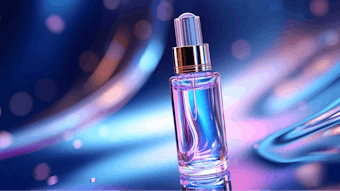
Editor's note: The "Words from Wiechers" series considers the lessons our industry can learn from the late Johann Wiechers, Ph.D. He was an adviser, colleague and leader in the industry until his unexpected passing. Presenting Wiechers's insights is Tony O'Lenick.
The present article reviews Chapter 4 of Wiechers's book, Memories of a Cosmetically Disturbed Mind; 'Cosmetic Science: A Matter of Life and Death?' In it, Wiechers states. 'Our work in the cosmetic industry will ... never stop, but we may have until eternity to get it right.' This observation is followed by a discussion about the future and responsibilities of scientists to use new technology prudently.
Wiechers states: "You agree with me that everything changes, don’t you? Yes, you do. You also believe as I do that we all must die one day, don’t you? Yes, you do. But, if everything changes and if we all must die one day, this also implies that one day we won’t die any longer. But what has this got to do with cosmetic science? Is this the shortest cosmetic claim substantiation possible that anti-aging products work?"
Life, Death and Cosmetic Science
Wiechers continues, "[How this relates to] cosmetic science is in recent developments in molecular biology relating to anti-aging. At the end of the 20th century, we just completed the Human Genome Project. Every gene of the human body has been located, identified and catalogued. The possibilities of this for many fields of science are enormous. We may be able to correct genetic life-threatening diseases such as cystic fibrosis and many others.
"But as soon as we will have accomplished this, what is stopping us from using these techniques to ensure that our offspring will have the eye color we always longed for, or a full head of hair, or maybe non-sensitive skin? The UK government recently allowed the use of human embryonic tissue for experimental purposes. This change will allow scientists to culture basal stem cells from human embryos—the only cells that can still differentiate into every specialized cell and organ of the human body.
"They could be used to grow a new heart or kidney for those needing a transplant of these organs, constituting a perfect genetic match. This would also apply to organs such as skin, which would be a great benefit for people covered in burns. But again, once we have achieved that, what is stopping us from using these techniques to ‘renew’ all physiological structures in someone’s face when the signs of aging have become too visible?"
Thought Experiment
Wiechers adds, "Let’s philosophize on what future developments in molecular biology could do to and for us humans, as well as to and for our cosmetic industry. It is beyond any doubt that gene therapy genuinely helps people who are suffering from life-threatening diseases. Minute modifications in a defect gene will ensure that another form of mRNA is copied from this gene, resulting in, for instance, the production of the right enzymes. Whereas all cells in our body contain all our genetic information, these modifications would only be made in those cells where these genes are being expressed, preventing the negative effect of this gene-related sickness.
"But the disease would remain in the genes of their reproductive organs, and to avoid offspring with the same deficits, we would have to manipulate the eggs or sperm of such an individual prior to conception. We can talk till the cows come home about whether this is ethically acceptable or not but history tells us that when something is technically possible, it will happen. Especially in situations where you have to have your eggs or sperm ‘pre-worked’ for quite legitimate reasons anyway, it will be tempting to have some additional imperfections such as tendencies towards baldness, obesity and alcoholism eliminated at the same time as well. After all, the difference between having your egg or sperm ‘pre-worked’ and ‘re-worked’ is only one letter and I’m guessing about 50 years’ development.
'The only certainty ...[is] that everything will continue to change forever. Everything, that is, apart from the fact that people will continue to be dissatisfied with themselves and will want to look differently. That will never change.'
"And with time, and after many discussions, it will happen. But are we helping the human race with such ‘re-working’ of our genes? Many of our current drugs keep people alive who would otherwise have died earlier. As a diabetic, I certainly contribute my thanks towards Banting and Best who discovered and developed insulin. But about 80 years later, we have had about three to four additional generations since the first diabetics survived. During this time, more and more people have grown up with diabetes because of the hereditary influences as well as our deteriorating eating habits. You can argue that Banting and Best’s invention of insulin has helped the individual but actually has weakened the human race.
"But again, our new molecular biology techniques may offer relief. If one would only fix the genes causing the disease in an individual without assuring that the offspring is not affected, one actually weakens the human race as we have already done for more than a century with drugs like insulin. However, if one corrects the gene once and for all, one has helped evolution to create a stronger human species in about one or two generations instead of thousands of years.
Molecular Biology in Cosmetics
"The applications of molecular biology in cosmetic science, however, are different, in my belief. We have never ever had the chance to influence the direction in which we humans would evolve. So, if we would all aim for a regular-shaped face with perfect teeth, curly or straight shiny hair, perfect skin for all of our lives, would this make us happy? I find it attractive that we live in a world where the white-skinned Caucasians want to be sun-tanned and the Asians want to have fairer skin. We all want to be what we are not and want to have what we have not. So, if as parents, you make your choice regarding the physical appearance of your child, how can you be sure that you have chosen the right attributes? If we all would look like Cindy Crawford or Brad Pitt, would we still find them attractive?
"The IFSCC Congress once again indicated that the influence in molecular biology in cosmetic science continues to increase. It first emerged in basic skin and hair research but is now also filtering through in applied cosmetic science. It has been predicted that toward the end of the 21st century, we will be able to prevent apoptosis or programmed cell death. Without wanting to go into all associated problems, we would theoretically have conquered death due to old age. As predicted above, even the certainty of death in life could be taken away from us.
"The only certainty remaining will be that everything will continue to change forever. Everything, that is, apart from the fact that people will continue to be dissatisfied with themselves and will want to look differently. That will never change. Our work in the cosmetic industry will therefore never stop, but we may have until eternity to get it right. Our cosmetic industry will therefore live forever. Or will that change, too? Cosmetic science: truly a matter of life and death."
The Lesson
There is no doubt that molecular biology has had a tremendous impact on our ability to design treatment for various cancers and to provide a path to a longer life. Likewise, Wiechers was surprisingly accurate looking into the crystal ball of the future of our industry. This chapter was written in 2000—20 years ago. Those of us that were active in the industry were speaking of raw materials, surfactants, emollients and thickening agents. The world of epigenomics, peptides and advanced actives simply did not exist; either in reality or in most of our imaginations.
Wiechers's words have an even greater impact on our lives as we deal with COVID-19. He speaks to the power of the technology we have at our command in the statement, “Our work in the cosmetic industry will therefore never stop, but we may have until eternity to get it right.”
He also speaks to the cost and consequences of getting it wrong; in his words: "If one would only fix the genes causing the disease in an individual without assuring that the offspring is not affected, one actually weakens the human race as we have already done for more than a century with drugs like insulin. However, if one corrects the gene once and for all, one has helped evolution to create a stronger human species in about one or two generations instead of thousands of years."
Next year, in November 2021, it will be a full decade since Wiechers's passing. Many things have changed since 2011; he has accurately predicted many of them.










